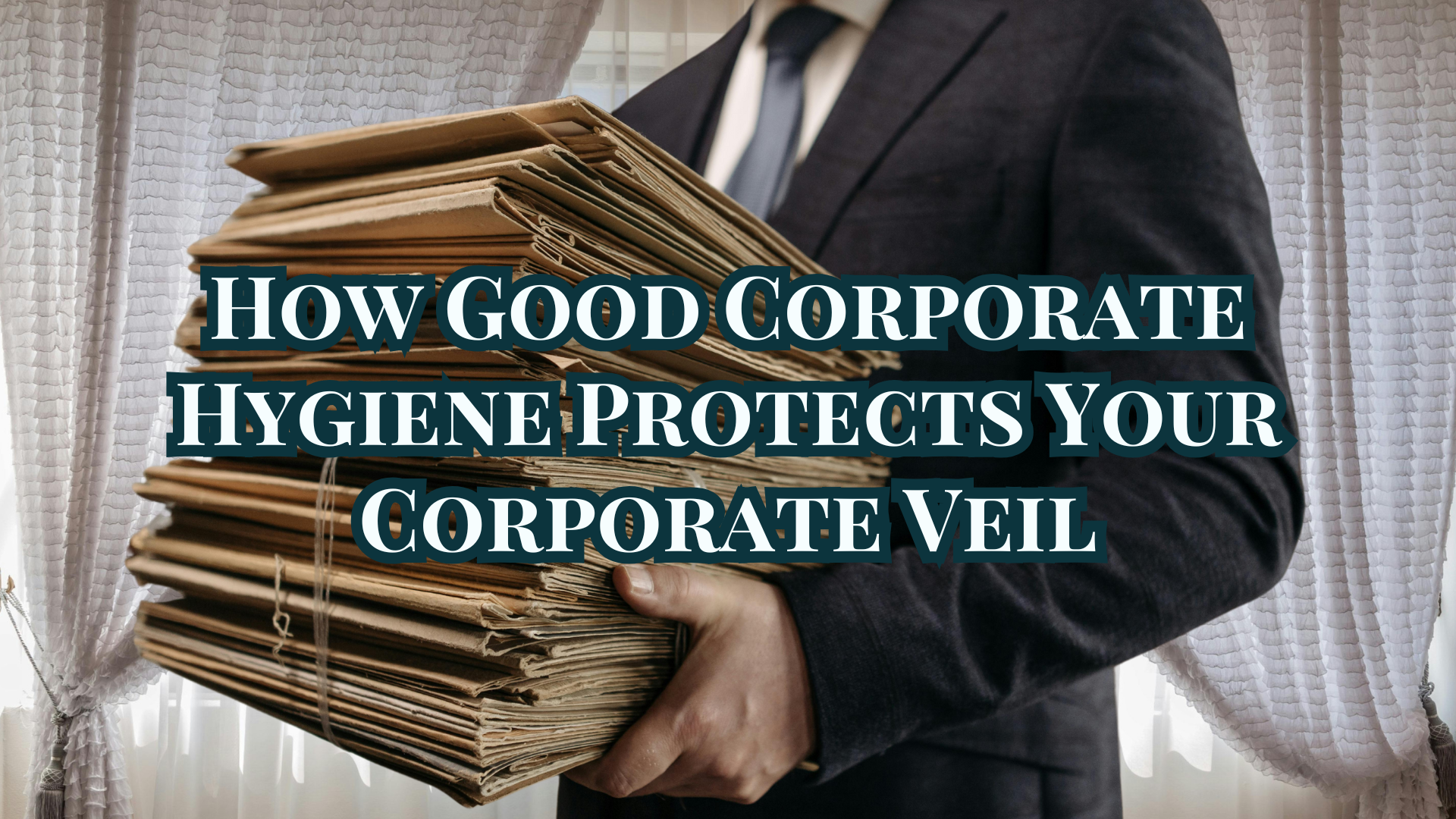How Good Corporate Hygiene Protects Your Corporate Veil
What is Piercing the Corporate Veil?
One of the major reasons to do business through a business entity, like a corporation or a limited liability company (an “LLC”) is the limited liability protection that comes with it. Limited liability is the legal concept that protects your personal property from business losses. With limited liability, the most you can lose because of business liability is what you invested into it. If you do business without it, like those in sole proprietorships and general partnerships do, the most you lose everything due to a business liability.
This creates a huge incentive to form a business entity before starting up a business. But it also creates an opportunity for bad actors to try escaping liability for their actions. What’s the solution to keeping bad actors accountable? It’s called “Piercing the Corporate Veil.”
What is the Corporate Veil?
The “Corporate Veil” is another name for the idea that business entities are separate people from their owners. The idea that a business is a separate person from its owner is why businesses need to register with the Department of State, or similar government office, of the states it does business in; it is why businesses need their own EIN and similar tax identifiers; why they can own property in their own name, sue and be sued, and most importantly, why the owner of a business entity cannot be held liability for business debts.
When the Corporate Veil gets “pierced”, limited liability no longer applies, and the owner of the business is personally liable for the business’ debts and obligations.
How to Pierce the Corporate Veil?
The Corporate Veil will be pierced if it can be shown that the corporation was organized to mislead creditors or perpetrate fraud. Proving that the corporation was used to mislead creditors or perpetrate fraud requires proof of improper conduct such as using the corporation as an alter ego of an owner. One way to prove that the corporation was an alter ego is if there is a disregard for corporate formalities.
What Are Corporate Formalities?
Corporate formalities are the administrative requirements to establish that a business entity is a separate person from its owners. Examples include:
Maintaining active registration with state offices by filing annual reports and other jurisdictions’ equivalents
Holding shareholder meetings as required by state law,
Approving business decisions by a vote of the shareholders,
Adhering to quorum requirements for shareholder votes.
Keeping minutes of these meetings and votes.
Obtaining a EIN and state tax identification number,
Opening a bank account in the business’ own name,
Signing contracts in the business’ name and
Not co-mingling funds between personal and business accounts.
Good Corporate Hygiene: Why Keeping Corporate Formalities Is Important
Adhering to corporate formalities shows constitutes good “corporate hygiene” and will provide the strongest protection against someone looking to pierce the corporate veil.
While it may be possible to prove that a business owner, through ignorance, incompetence, or other means, disregarded these corporate formalities and did so without intent to defraud or mislead creditors, it would be better to avoid the argument altogether that you as a business owner are so inept you can't follow the rules of owning a business entity.
Tell TealAcre to Tackle the Task!
If you’re starting a business and want to have good corporate hygiene from Day 1 or already have a business entity and are looking to improve your adherence to corporate formalities, reach out to TealAcre. To contact TealAcre you can:
Schedule a complimentary 15-minute consultation by clicking here.
Register for our next webinar by clicking here.
To check out our social media, click here.
To sign up for our newsletter & receive exclusive offers, articles, and insights, click here.


